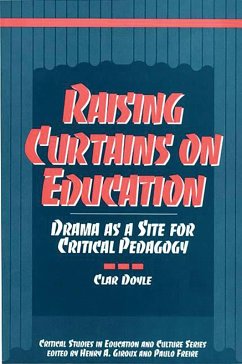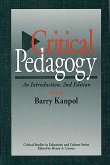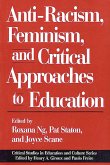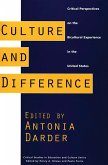Believing that transformation is possible and that it must come from within, Clar Doyle illustrates the vital connection between drama and critical pedagogy. Presuming that a practice informed by the theory of critical pedagogy is essential to achieve an emancipatory education, Doyle shows how well drama and aesthetic education can encourage a pedagogy that is critical. He explores the real as well as the perceived values and understandings given to the aesthetic in school settings, how tastes and awareness are produced and how students' backgrounds inform the way in which art and drama are experienced. Furthermore, Doyle shows the ways in which the dominant cultural agencies rob both teachers and students of creativity through their reproductive policies. The book explores such critical questions as: the nature of culture; the historical place of drama within education; and the debate between drama and theatre as it applies to schooling. With a critical perspective, he reviews the current status of drama education and suggests ways in which educators can redefine their mission and refine their practice. By examining the influence of the culture industry and the issues surrounding style choices, Doyle highlights the challenge that teachers must meet in order to use performance skills to tease out attitudes and understandings. He concludes by showing how drama can help students, not only to bring about change in their own lives, but to effect change in the world around them.
Bitte wählen Sie Ihr Anliegen aus.
Rechnungen
Retourenschein anfordern
Bestellstatus
Storno









